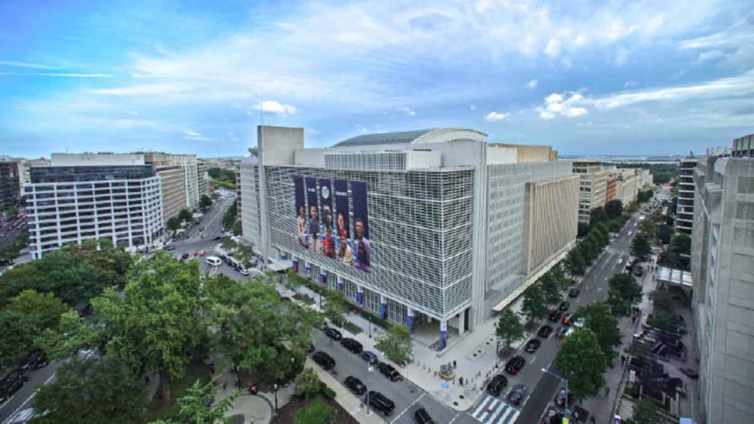A new World Bank report has revealed that Ghana had accumulated significant government arrears prior to Covid-19 pandemic.
This is far higher than the projected arrears post Covid-19.
The report dubbed “Finance for an Equitable Recovery" indicates that the percentage of the country’s arrears was estimated at almost 5% of the country’s Gross Domestic Product.
This ranked the nation 16th in sub-Saharan Africa with the highest government arrears.
It confirms concerns by some economists and analysts that the country’s fiscal situation was deteriorating prior to Covid-19. This was also heightened by the rising debt.
The report however urged governments including Ghana to mobilize new revenue to pay off debts incurred for the crisis response and preserve their ability to support the Covid-19 recovery, adding, the potential return to economic growth during the recovery will help.
“However, governments must also pursue complementary, longer-term structural policies to increase their revenue base. Most emerging economies, for example, lack the institutional capacity to tax incomes and instead rely primarily on taxing consumption”.
Scaling back the stimulus
The report said resource-constrained governments in the short term face the challenge of scaling back fiscal support to households and firms without dampening the recovery.
“In many countries, direct payments to households and firms have served as the main pillar of the crisis response and were designed to protect the livelihoods of economically disadvantaged groups—such as workers in the informal sector and those in unskilled occupations—and the survival of businesses in the sectors most severely affected by the crisis”.
However, it said, few countries have the resources to maintain these policies in the longer term, and in many cases countries will need to phase out support before economic activity has fully recovered.
Managing risks to financial stability
It also called for continued access to credit for households and businesses, saying, many households and businesses are at acute risk of losing access to formal credit as a result of the COVID-19 crisis.
“Such a loss could dampen the recovery because access to credit is an important insurance mechanism that strengthens the ability of households and firms to weather economic risks that might arise during an extended recovery”, it added.
Latest Stories
-
Gideon Boako donates 10 industrial sewing machines to Yamfo Technical Institute
1 min -
‘Golden Boy’ Abdul Karim Razak honored at WAFU-B general assembly
15 mins -
Buipewura Jinapor secures Vice Presidential position in National House of Chiefs with record votes
24 mins -
2024 election: I want results to come out like ‘milk and honey’ – Toobu
26 mins -
Ghana’s Henry Bukari hands over chairmanship of ECOWAS Brown Card Council of Bureaux
31 mins -
Residents of Dome-Kwabenya on edge ahead of December elections
1 hour -
Moffy drops new single ‘Wo’, blending culture and modernity
1 hour -
Don’t bring soldiers to polling stations – Martin Kpebu
1 hour -
Ogyeahohuo Yaw Gyebi II retained as President of National House of Chiefs
2 hours -
Embrace ICT to fit in digital world – Ho NYA boss to youth
2 hours -
We don’t want armed soldiers at polling stations – Tanko-Computer
2 hours -
Drama as police corner armed robbers inside locked forex bureau at Lapaz
3 hours -
NEIP CEO to Kwaku Manu: You can support any political party, but stop misbehaving in NPP colours
3 hours -
30% quota for less privileged shows Free SHS is inclusive – Ofosu Nkansah
3 hours -
Nigerian-born conquers childhood hearing loss to become KNUST’s overall best graduating student
3 hours

